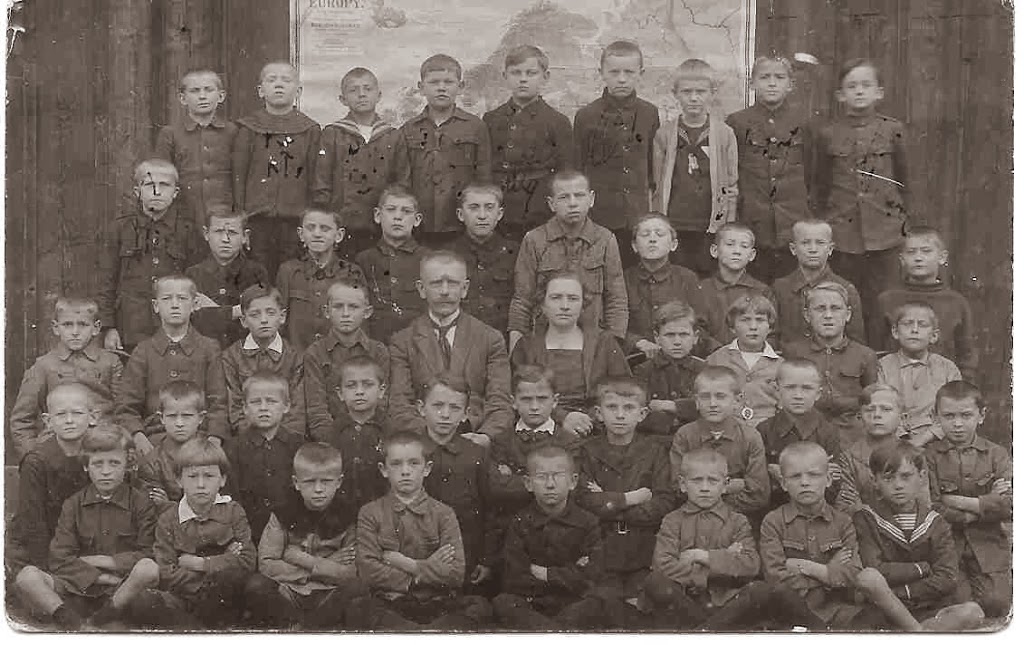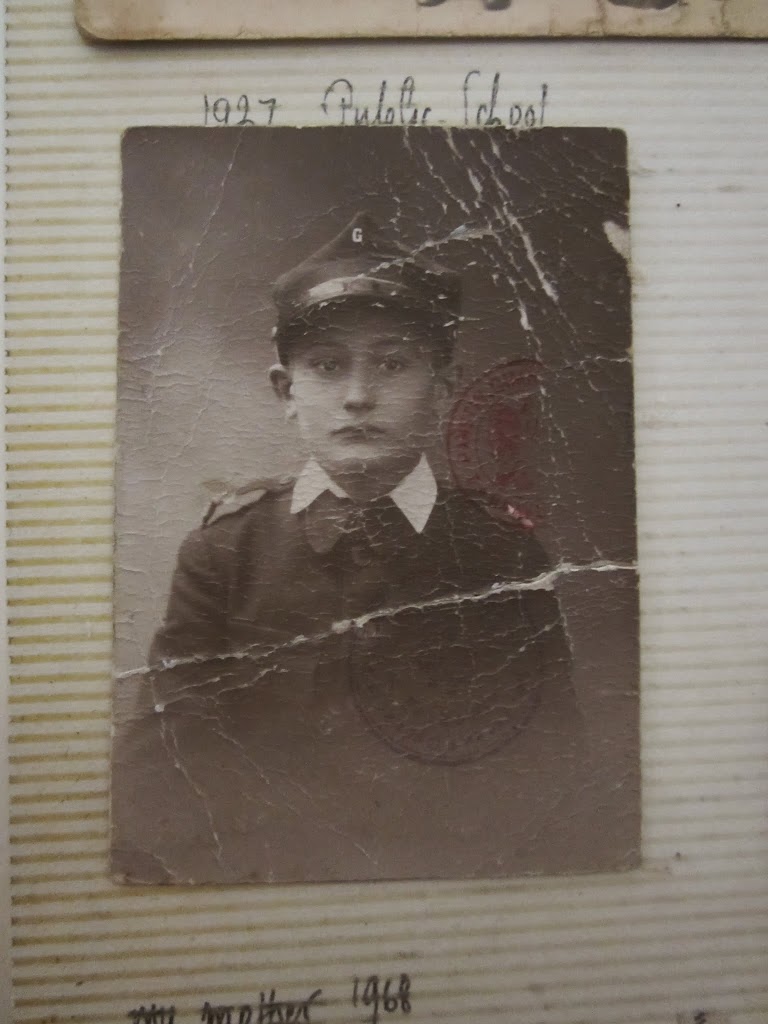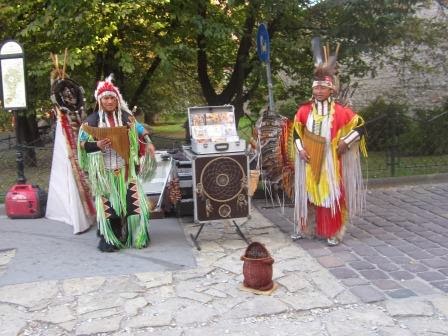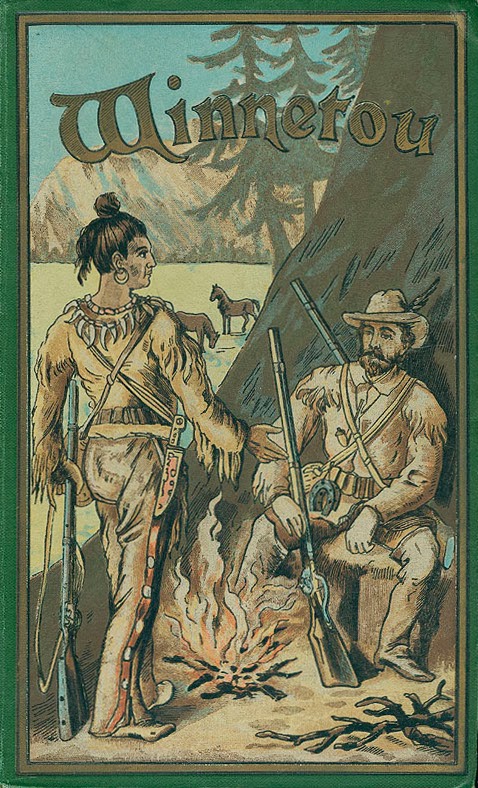 We are all a product of our family, circumstances, education and inherent belief systems. Thus it’s important to mention Henry’s education as a background for future survival. And on a tangent – I followed down one author Henry mentioned – Karol May.
We are all a product of our family, circumstances, education and inherent belief systems. Thus it’s important to mention Henry’s education as a background for future survival. And on a tangent – I followed down one author Henry mentioned – Karol May.
 About the time Henry joined the YMCA Henry’s mom managed to get a job as a housekeeper for the Freege family, one of the wealthiest families in Krakow. She used the money to enroll Henry in a school associated with the Dominicans, St. Jacka I believe. She worked very hard and spent most of her money sending Henry to school. The Dominican church still stands; however the school behind it was closed by the communists in 1950 and turned into a cooking school (we think.) Since his mom wanted him in a private school, and worked very hard to pay for private school, one can assume the street was getting pretty rough.
About the time Henry joined the YMCA Henry’s mom managed to get a job as a housekeeper for the Freege family, one of the wealthiest families in Krakow. She used the money to enroll Henry in a school associated with the Dominicans, St. Jacka I believe. She worked very hard and spent most of her money sending Henry to school. The Dominican church still stands; however the school behind it was closed by the communists in 1950 and turned into a cooking school (we think.) Since his mom wanted him in a private school, and worked very hard to pay for private school, one can assume the street was getting pretty rough.
 * I didn’t know at the time who Karol May (1842 – 1912) was. I just wrote down what Henry said. However, if you enter his name into a search engine, lots of references pop up. Virtually unknown to English audiences, Karol May was a prolific, and perhaps the best-selling German writer of all time having sold over 100 million (or 200 million depending on who’s reporting) copies that have been translated into 30 languages. His character Winnetou was an Apache – ‘the noblest of all Red Warriors.’ Admirers included Albert Einstein and Adolf Hitler – who never banned the books even though they glorified a man of color. What I find particularly ironic, given that I live in the American Southwest, is though he’s the veritable Zane Grey of Germany writing about the American West – he never came here! Yet his writing strongly influenced how most Germans think of the American Indian. He created the character ‘Winnetou’ – a wise Apache chief, the ‘Noblest of all Red Indian Warriors.’ Who knew? German anyone? I don’t know if Henry read these books in Polish or German.
* I didn’t know at the time who Karol May (1842 – 1912) was. I just wrote down what Henry said. However, if you enter his name into a search engine, lots of references pop up. Virtually unknown to English audiences, Karol May was a prolific, and perhaps the best-selling German writer of all time having sold over 100 million (or 200 million depending on who’s reporting) copies that have been translated into 30 languages. His character Winnetou was an Apache – ‘the noblest of all Red Warriors.’ Admirers included Albert Einstein and Adolf Hitler – who never banned the books even though they glorified a man of color. What I find particularly ironic, given that I live in the American Southwest, is though he’s the veritable Zane Grey of Germany writing about the American West – he never came here! Yet his writing strongly influenced how most Germans think of the American Indian. He created the character ‘Winnetou’ – a wise Apache chief, the ‘Noblest of all Red Indian Warriors.’ Who knew? German anyone? I don’t know if Henry read these books in Polish or German.
In later conversations, Henry talked about how much he loved going to Tom Mix movies, Hollywood’s megastar in the 1930’s of (American) western movies. Henry often said that moving to the American West was a dream come true. This may also explain why one day in Krakow we saw street performers who were Native Americans. Rick and I laughed at the time – but now I wonder if Karol May still influences European readers. And while it’s not on the subject of Henry, I live in Arizona; during the 1860s and 1870s, the Chiricahua Mountains of Arizona provided a refuge for the Apache tribe, led by the famous chiefs Cochise and Geronimo. So as an American who just learned about Karol May, I’m still stunned that what was essentially prolific creative writing – still influences how Germans and central Europeans view the American Indian experience.
Solo picture from public school 1917 (age 10.)
Group picture from school undated.
Book cover template downloaded from Wikipedia.
Photo of street performers with tip basket taken by main gates of Krakow.
